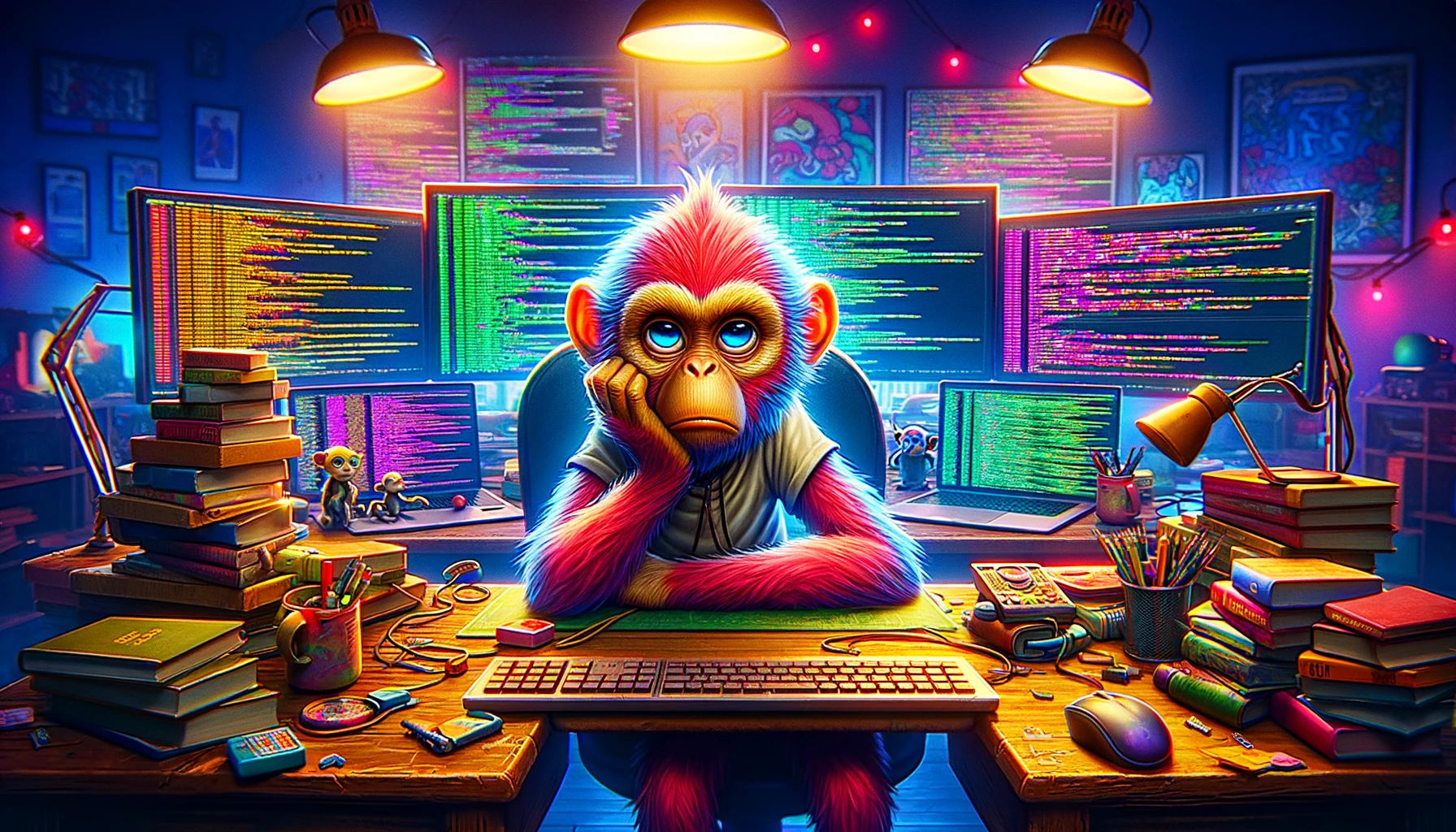The end of the Code Monkeys
The rapid rise of AI, especially in the last year, has led to a remarkable shift in potential and opportunities on the labor market, which we want to look at from the perspective of IT outsourcing in this blog article.
An article worth reading from February 21, 2024 in the FAZ-Online by Alexander Wulfers( availablehere (possibly Paywal)) with the title “Programmers have had their day” takes up these interesting developments and also the term “code monkeys”.
But what is it all about?
The author of the article refers the term “code monkeys” primarily to the local job market, where a degree in computer science or the corresponding training was previously considered a guarantee of a secure job.
However, as the author clearly explains, this has changed: Simpler and schematic jobs in particular are currently under threat from AI; fewer jobs are already being advertised in these areas, and it is likely that the opportunities on the job market for people who are oriented towards these jobs will deteriorate in the future.
We would like to add our own perspective, that of the IT outsourcing company and (our role until 2021) the IT outsourcing customer, to the exciting findings of this article.
Just a few years ago, it was common practice to outsource simple programming tasks to so-called “code monkeys” or “click monkeys” in offshore destinations such as India, where people were employed for minimal wages – often €2 or less per hour.
These individuals were primarily tasked with writing repetitive and simple lines of code or simply clicking on the same Google ad as often as possible.
A job that required little to no critical thinking or in-depth problem-solving skills.
However, the rapid pace of technological development has meant that many of these simple tasks can now be performed efficiently by algorithms or, if necessary at all, artificial intelligence. AI systems are now easily able to generate, analyze, test and optimize code, making them valuable tools for companies looking for efficiency and cost savings.
On the other hand, there are also activities that are still not suitable for being completely replaced by AI.
These primarily include areas that require a high degree of human intuition, creativity and emotional understanding, such as developing innovative concepts, understanding and solving complex problems or creating artistic works.
Furthermore, interpersonal interaction and communication remains a field in which AI, despite all its advances, cannot fully capture or replicate the subtleties of human emotions and the depth of understanding that arises in customer conversations, for example.
Furthermore, ethical decisions and judgments, which can also play a role in software development, require a human perspective informed by cultural, social and personal values and experiences.
The end of the age of “code monkeys” therefore also means the beginning of an era in which the demand for deeper understanding, creative problem solving and high-quality software development comes to the fore.
The consequences of this development are far-reaching.
Companies and organizations need to rethink their recruitment, training and purchasing practices, for example.
Instead of quantity, they should now focus more on quality.
This means focusing more on recruiting employees with a high skill level and the ability to solve complex problems.
It is no longer (just) about who can write code the fastest or the cheapest, but who is able to develop innovative solutions to complex problems.
In the area of IT outsourcing, this also means a paradigm shift: the value of an outsourcing partner is no longer determined solely by its ability to reduce labor costs as much as possible.
Rather, the partner’s ability to deliver high-quality, technologically advanced solutions (project outsourcing) or employees (service outsourcing) is already important and will be even more so in the future.
Demand is therefore gradually shifting from simple coding services to services that require a deep technological understanding and a pronounced ability to innovate.
As a result, it can also be said that the age of the code monkey is over…but this also represents an opportunity.
An opportunity that puts quality and innovation at the heart of software development.
For programmers, no matter where in the world they do their work, this means the opportunity to develop and establish skills that go beyond just coding.
For companies, it means that they need to build their teams wisely to remain competitive in an increasingly complex and AI-dominated world.
This is also a challenge that we face as Bitkollegen: Since our launch in 2021, we have not been offering “code” and “click monkeys”, but highly qualified specialists who not only have a sophisticated education but also excellent communication skills.
We deliberately set ourselves apart from “low-cost providers” through our high quality standards and our responsible and sustainable approach.
In addition, we use AI solutions ourselves – where appropriate and suitable – to limit our valuable human resources to the areas where they are actually needed and to achieve an optimal and cost-efficient result for our customers.



